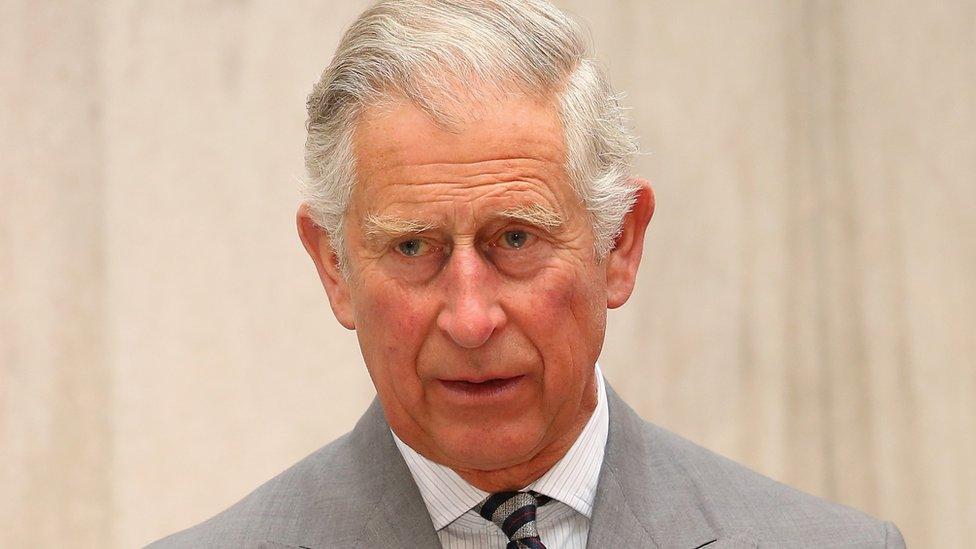Prince of Wales joins soil boosting project
- Published

The Prince of Wales is joining an Anglo-French government initiative to improve the condition of global soils.
Ministers from both governments are meeting the prince to discuss how to improve soil health and reduce greenhouse gas emissions from farming.
Typically the focus of cutting greenhouse gases has fallen on transport and industry, but France says agriculture must play its part.
Ministers will debate how to store more carbon in soils.
They will also discuss how to restore degraded soils, improve fertility and increase food security.
The French farm ministry says farming and forestry can contribute between 20% and 60% of potential cuts in greenhouse gases up to to 2030.
It says changes to farming methods can save 12-15 million tonnes of CO2 through livestock farming alone. It lists the need for:
covers for slurry pits, biogas flares, converting slurry to usable methane, improved animal feed;
better fertiliser use with more precise dosage of chemicals and use of manure, and
carbon storage in soils using soil cover crops, simpler working of the soil and, longer crop rotations.
Previous attempts to nudge Britain's farmers into cutting emissions have largely failed. The Committee on Climate Change noted that emissions from agriculture have been broadly level since 2008 while industry and power generation emissions have dropped sharply.
The French farm ministry quotes statistics from the Intergovernmental Panel on Climate Change (IPCC) projecting that farming and forestry can contribute between 20% and 60% of potential cuts in greenhouse gases up to 2030.
Specific actions
Peter Melchett from the Soil Association told BBC News: "The French initiative is extraordinarily important. It has put greenhouse gas emissions from farming on the global climate change agenda for the first time since Kyoto (the first climate agreement in 1997).
"It highlights the desperate need to stop emissions of greenhouse gases from soils - especially lowland drained peat - and the huge potential for sequestering carbon in agricultural soils."
The Commons Environmental Audit Committee (EAC) recommended in May that in order to implement an initiative from last year's Paris climate summit to increase soil carbon levels by 0.4% per year, the government should set out specific, measurable and time-limited actions.
The government agreed the importance of the initiative and said it was investigating what action to take.
Lord Krebs from the Committee on Climate Change said: "The health of the UK's soils is of critical importance for the productive capacity of our agricultural land.
"A combination of population and economic growth are expected to increase global demand for food in the future. At the same time, climate change could reduce the capacity of the land globally to keep pace with growing demand.
"It is, therefore, essential that we are doing all we can to protect the long-term productive capacity of our agricultural soils."
The Anglo-French meeting has been organised by The Prince of Wales' International Sustainability Unit in collaboration with both governments.
Follow Roger on Twitter., external